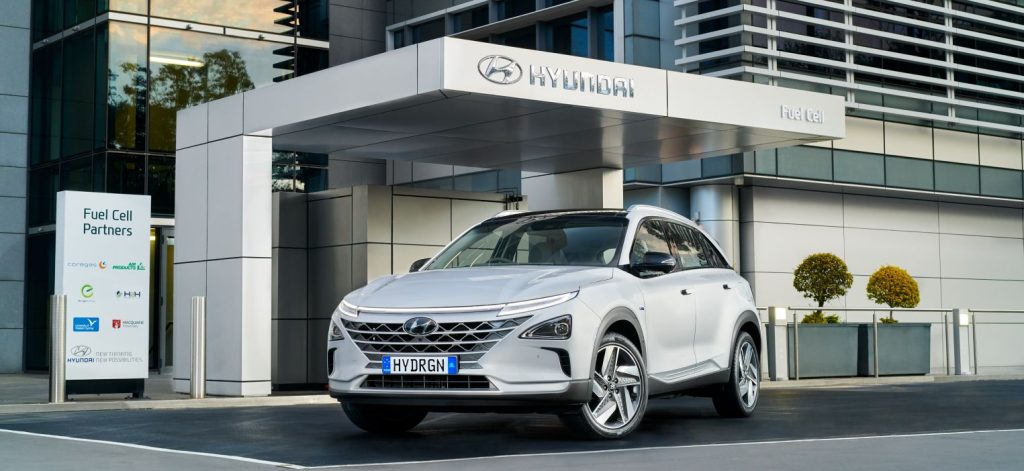
Introduction
In the ever-evolving landscape of the automotive industry, Hyundai Motor Company has consistently stood out as a pioneer in innovation, design, and sustainability. With a commitment to shaping the future of mobility, Hyundai has unveiled an ambitious vision for 2030, outlining a comprehensive roadmap that goes beyond just producing vehicles. Hyundai’s Vision for 2030 encapsulates a holistic approach to innovation and growth, aiming to address societal challenges, enhance customer experiences, and create a sustainable and prosperous future.
I. Advancing Green Mobility
One of the central pillars of Hyundai’s Vision for 2030 is the advancement of green mobility. Hyundai aims to become a global leader in eco-friendly vehicles, with a strong focus on electric vehicles (EVs) and hydrogen fuel cell technology. Here are some key elements of their green mobility strategy:
- Expanding Electric Vehicle Lineup: Hyundai plans to introduce a diverse range of electric vehicles across various segments, from compact EVs to luxury electric cars. The company has already made significant strides with models like the Hyundai Ioniq 5 and Hyundai Kona Electric.
- Hydrogen-Powered Vehicles: Hyundai has been at the forefront of hydrogen fuel cell technology with its NEXO SUV and commercial vehicles. The company envisions hydrogen as a clean and efficient energy source, suitable for a wide range of applications.
- Sustainable Manufacturing: Hyundai is committed to reducing its carbon footprint throughout the entire production process. They are investing in sustainable manufacturing practices and plan to achieve carbon neutrality in their manufacturing facilities by 2045.
II. Leading in Autonomous Driving
In the era of connected and autonomous vehicles, Hyundai is actively pursuing the development of self-driving technology. Their vision for 2030 includes becoming a leader in autonomous driving by focusing on:
- Advanced Driver Assistance Systems (ADAS): Hyundai is enhancing its ADAS technology to provide a safer and more convenient driving experience. Features like adaptive cruise control, lane-keeping assist, and automated parking are becoming more sophisticated and widespread in Hyundai’s vehicle lineup.
- Autonomous Vehicles: Hyundai is conducting extensive research and development to bring fully autonomous vehicles to the market. These vehicles will not only revolutionize personal transportation but also have potential applications in ride-sharing, delivery services, and urban mobility solutions.
III. Creating Innovative Mobility Solutions
Hyundai’s Vision for 2030 extends beyond traditional car manufacturing. The company is dedicated to creating innovative mobility solutions that address the evolving needs of consumers:
- Urban Air Mobility (UAM): Hyundai is investing in UAM technology, with plans to develop electric vertical take-off and landing (eVTOL) aircraft. These vehicles could provide a new dimension to urban transportation, reducing congestion and offering efficient aerial mobility.
- Purpose-Built Vehicles: Hyundai is exploring the concept of purpose-built vehicles (PBVs) tailored for specific use cases, such as autonomous shuttles for urban transportation and electric vehicles for last-mile delivery.
IV. Commitment to Sustainability
Sustainability is a core value of Hyundai’s Vision for 2030. The company understands the urgent need to combat climate change and reduce environmental impact:
- Carbon Neutrality: Hyundai is committed to achieving carbon neutrality in its global operations by 2045. This includes not only vehicle manufacturing but also supply chains and logistics.
- Circular Economy: The company is exploring circular economy principles, with a focus on recycling and reusing materials to reduce waste and resource consumption.
V. Customer-Centric Approach
Hyundai’s vision for 2030 places a strong emphasis on the customer experience:
- Digital Transformation: Hyundai is investing in digital technologies to provide seamless and personalized experiences to customers. This includes connected services, over-the-air updates, and digital retail platforms.
- Safety and Well-being: Ensuring the safety and well-being of customers remains a top priority. Hyundai continues to innovate in safety technology and actively supports initiatives to improve road safety worldwide.
VI. Global Expansion and Partnerships
To realize its vision for 2030, Hyundai recognizes the importance of global expansion and strategic partnerships:
- Global Presence: Hyundai aims to strengthen its presence in key markets, including North America, Europe, and emerging markets. This includes increasing local production and developing region-specific products.
- Collaborations: Hyundai is open to partnerships with other companies, startups, and research institutions to foster innovation and accelerate the development of new technologies and mobility solutions.
Conclusion
Hyundai’s Vision for 2030 represents a comprehensive roadmap for innovation and growth in the automotive industry. With a commitment to green mobility, autonomous driving, innovative mobility solutions, sustainability, customer-centricity, and global expansion, Hyundai is poised to shape the future of transportation. As they continue to push the boundaries of what’s possible, Hyundai’s vision serves as an inspiring example of how a forward-thinking company can lead the way towards a more sustainable, connected, and efficient future for mobility.
Originally posted 2023-09-16 07:02:13.